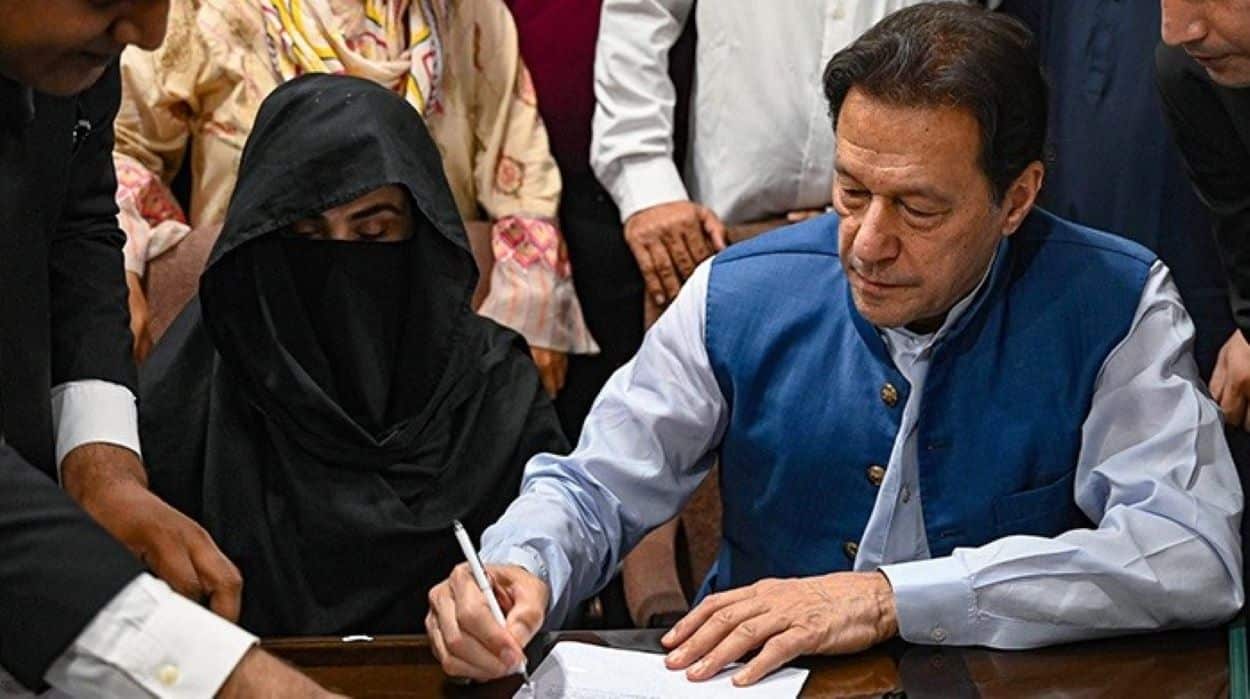On July 8, 2025, former Pakistan Prime Minister Imran Khan and his wife, Bushra Bibi, filed pleas with the Islamabad High Court (IHC) for an expedited hearing to suspend their convictions in the £190 million Al-Qadir Trust case.
The petitions, filed by Barrister Salman Safdar, request the Islamabad High Court (IHC) to schedule a hearing “without further delay” due to concerns regarding “liberty and freedom.” In January 2025, Accountability Court Judge Nasir Javed Rana convicted Imran Khan to 14 years in prison and Bushra Bibi to seven years at Adiala Jail, imposing fines of ₨1 million and ₨500,000, respectively. Failure to pay these fines results in an additional six months and three months added to their sentences.
The case pertains to the Al-Qadir University Project Trust, which is accused of being a “sham trust” that misappropriated £190 million. The court has ordered the forfeiture of its assets under the National Accountability Ordinance of 1999. These convictions are part of several legal battles involving Imran Khan since his ousting in 2022, including the cases related to the cipher and Toshakhana. The couple’s appeal is challenging the legality of the verdict.
The plea follows Imran’s ongoing detention, with supporters alleging political victimisation. The IHC has previously granted relief in related cases, like the cipher case acquittal, fueling hopes. Critics argue the National Accountability Bureau’s broad powers risk abuse.
Imran and Bushra’s plea at the Islamabad High Court, which affects 220 million Pakistanis, has sparked debates about justice and political accountability within a $350 billion economy. This situation highlights tensions in Pakistan’s legal system, where 70% of citizens prioritise fair trials. The outcome of the case could significantly influence public trust and political dynamics, shaping the narrative of governance in Pakistan, especially amid growing global attention.






